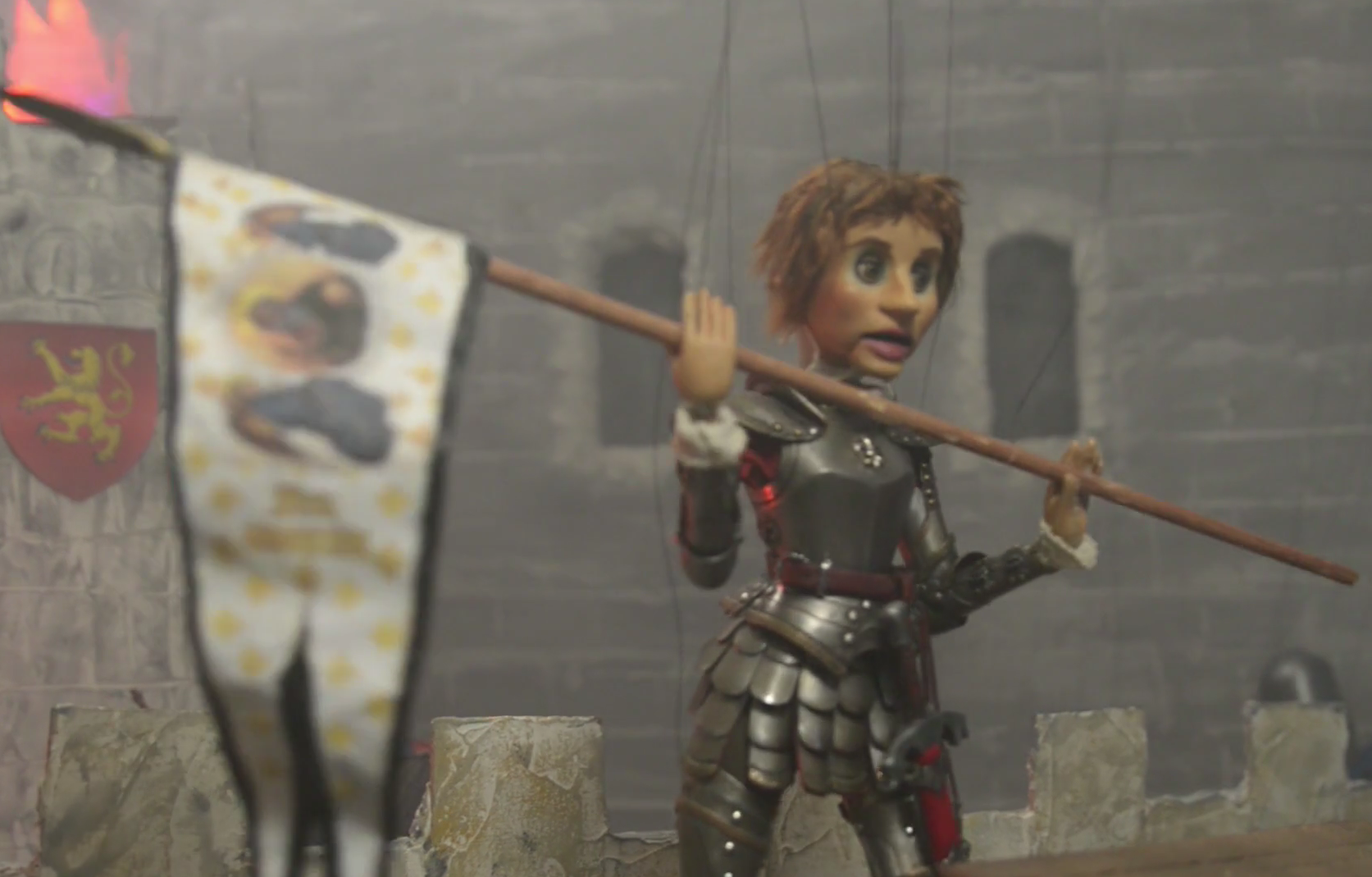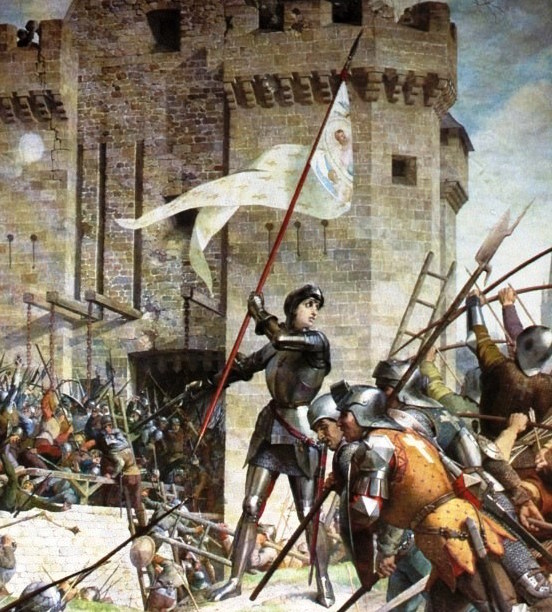
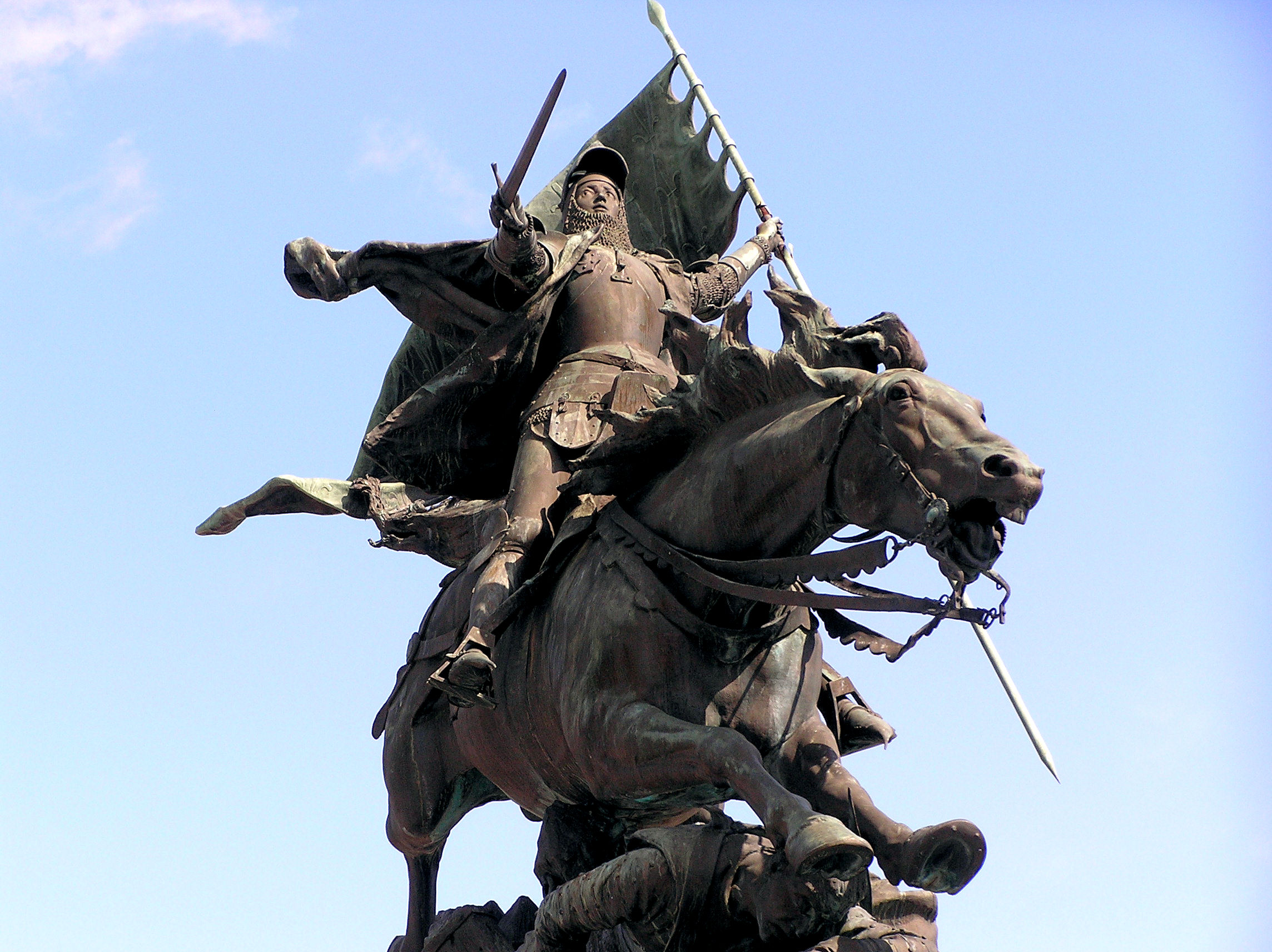
Joan of Arc
Joan of Arc (Jeanne d'Arc in French) was born a peasant in Domremy, northeast France (Lorraine) in 1412 and died on May 30, 1431 in Rouen, France. During that time, the French and the English were fighting in the second phase of the Anglo-French Hundred Years’ War for the control of the French crown. The Burgundy area of Northern France had sided with the English crown and were sporadically invading villages, including Domremy.
As a teenage girl Joan heard voices she claimed were from archangel Saint Michael, who urged her to convince the Dauphin (King-in-waiting) Charles, to allow her to lead the French army.
Charles was in Chinon, a week’s ride from her village, through enemy infested land. In a private meeting with him, she insisted the English could be defeated at Orleans and Charles would become king.
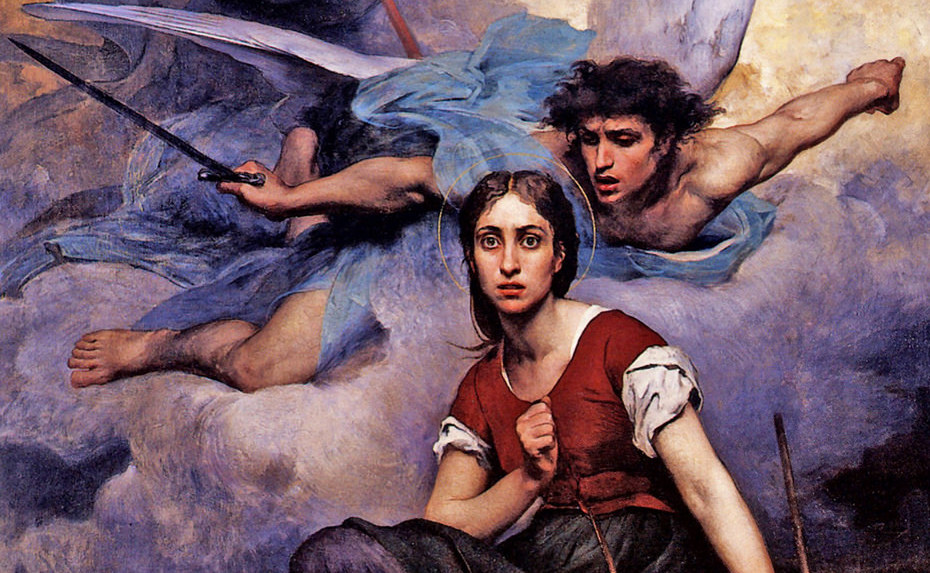
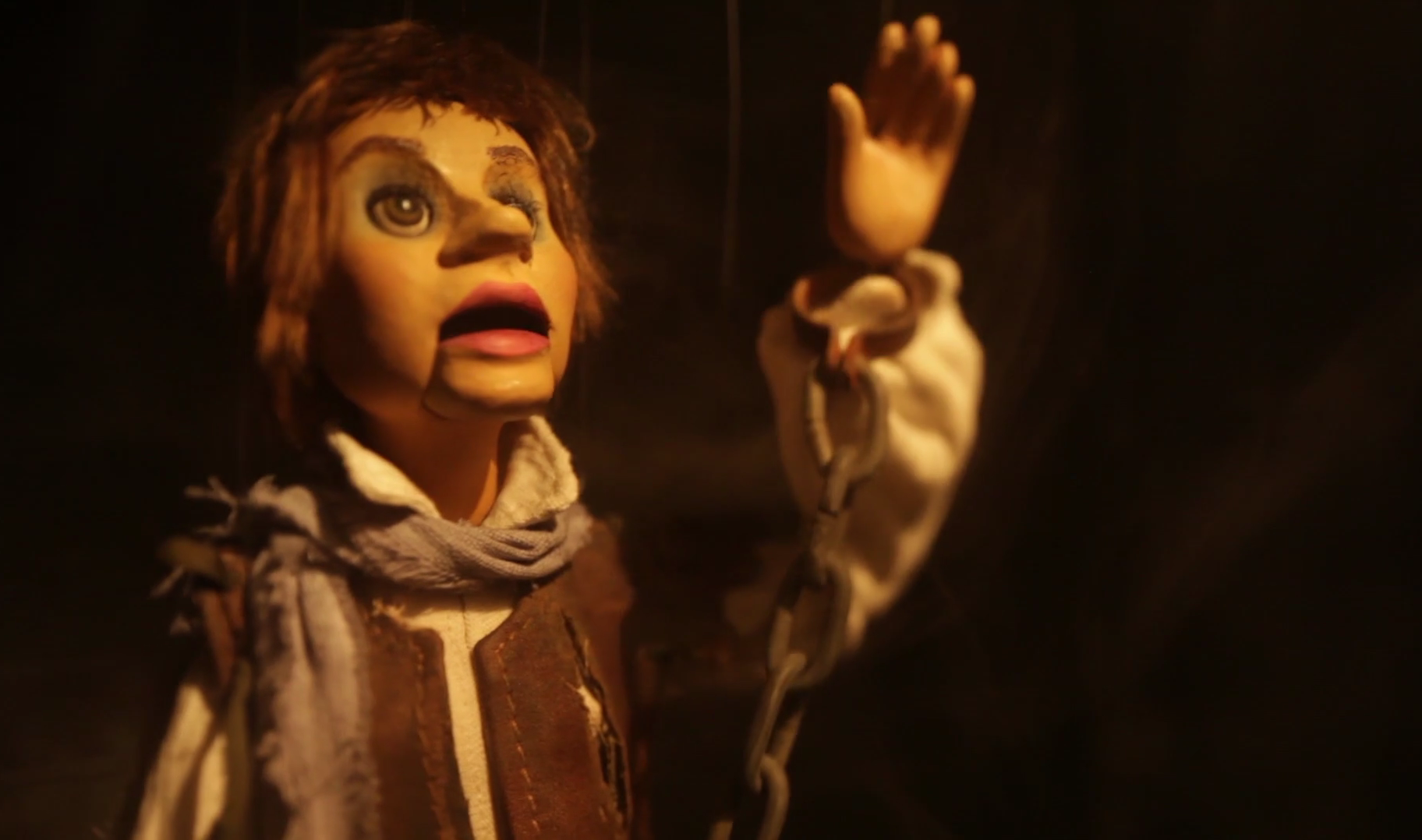
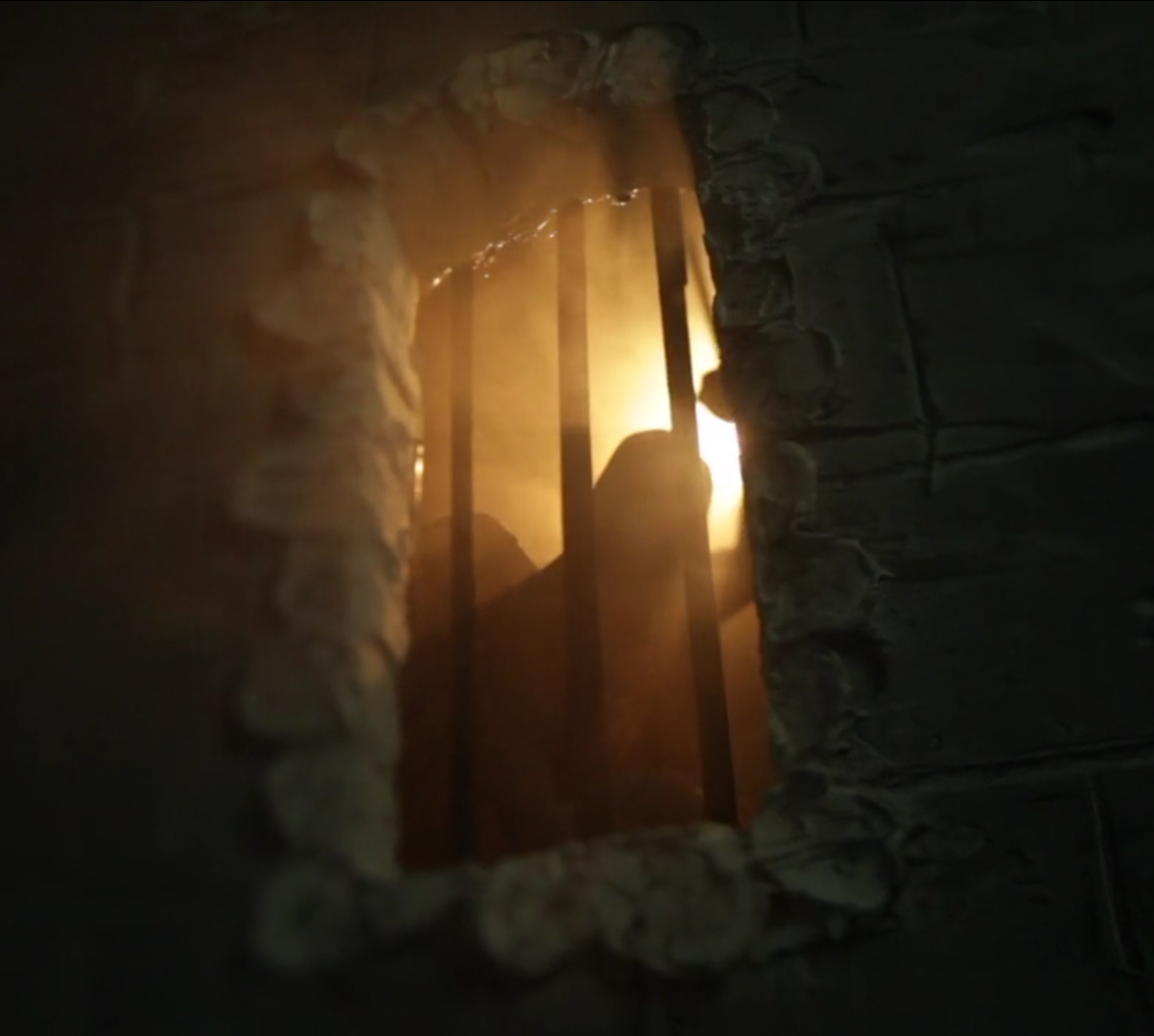
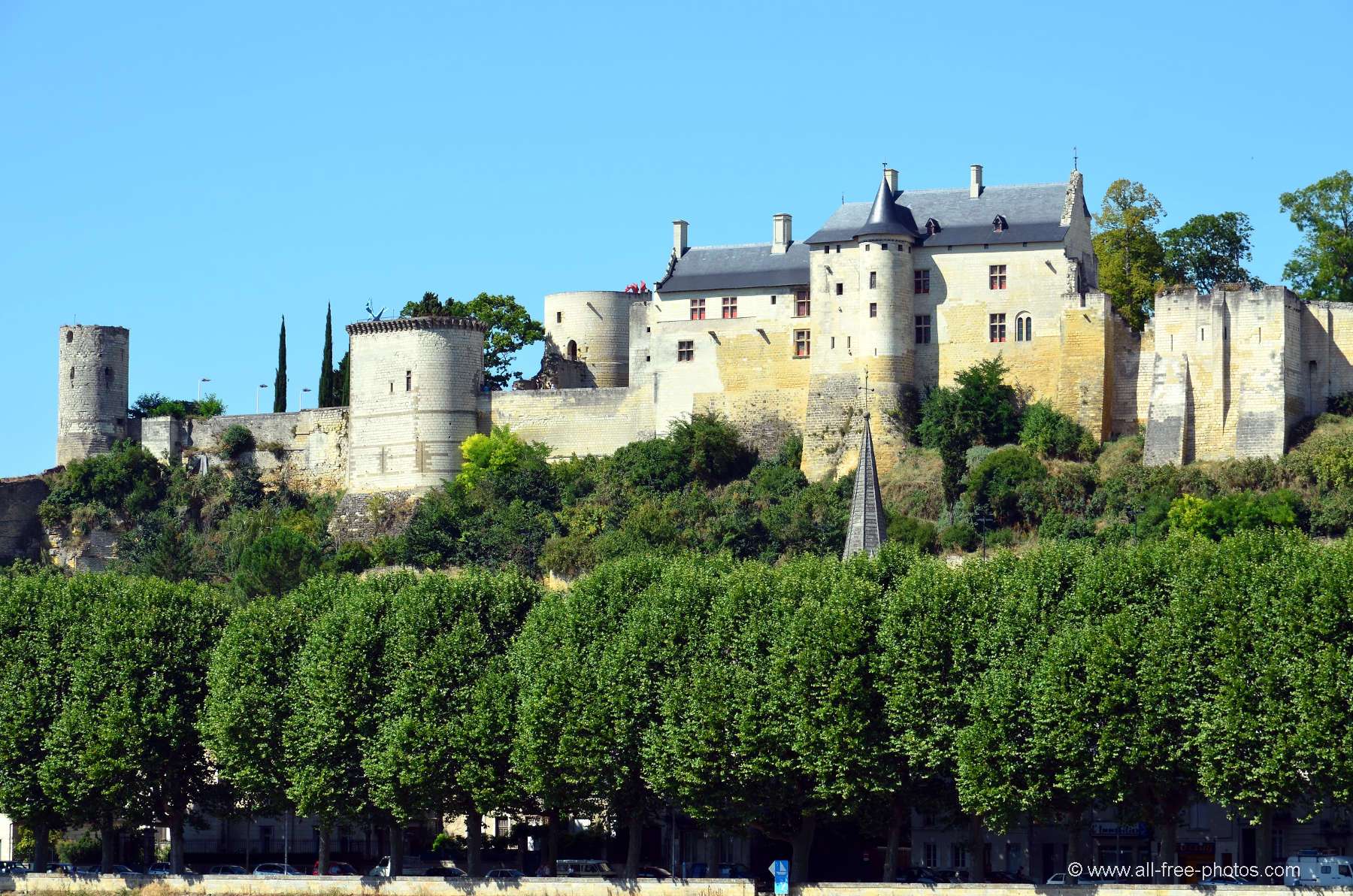
Joan championed Charles VII through her successful military campaign, especially the Siege of Orleans (1429), and she was able to secure him the coronation in Reims. Her unlikely rise to power and her incredible victories created the legend of Joan of Arc, with her allies thinking her a saint and her enemies seeing her as a witch.
While attempting to influence Paris and the surrounding region to support the French King Charles VII, she was captured in Compiegne by the Burgundians, sold to the English and tried by the Catholic Church in Rouen, a Northern french city dominated by the English crown.
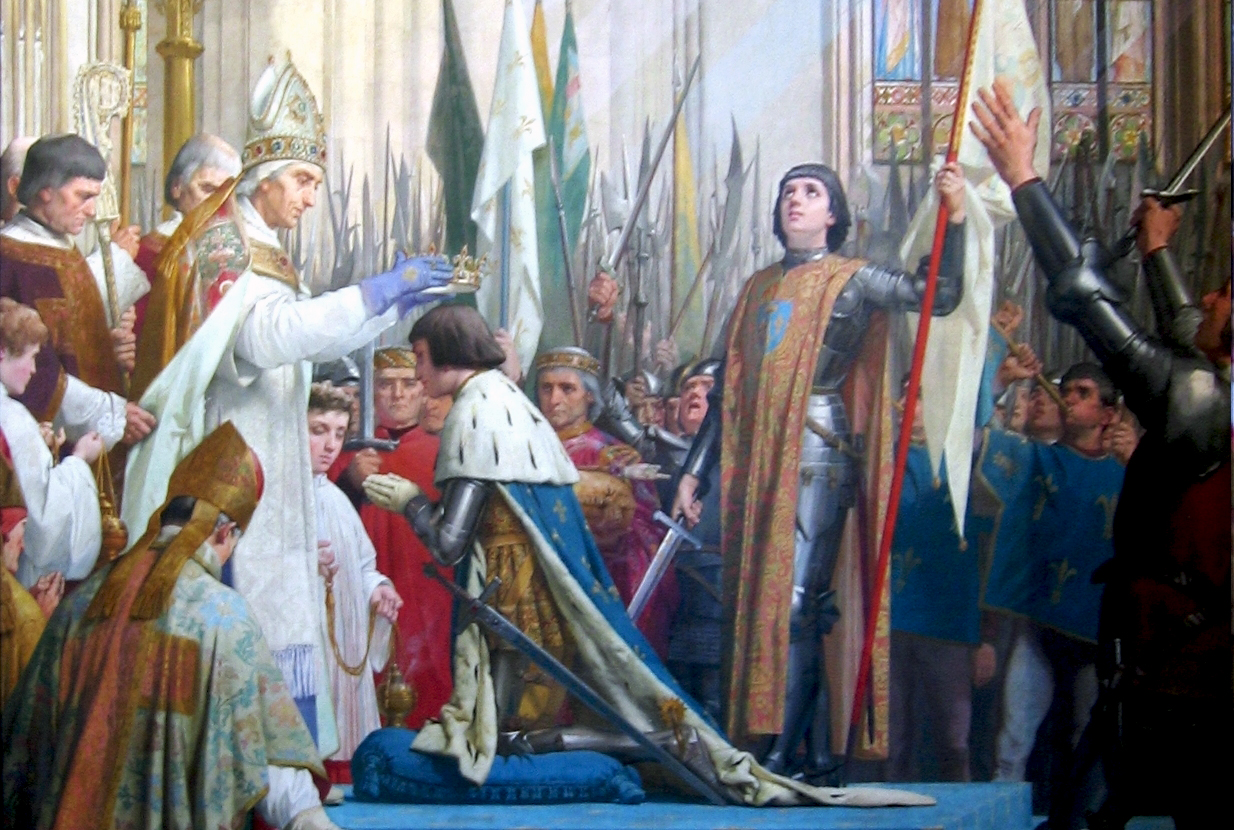
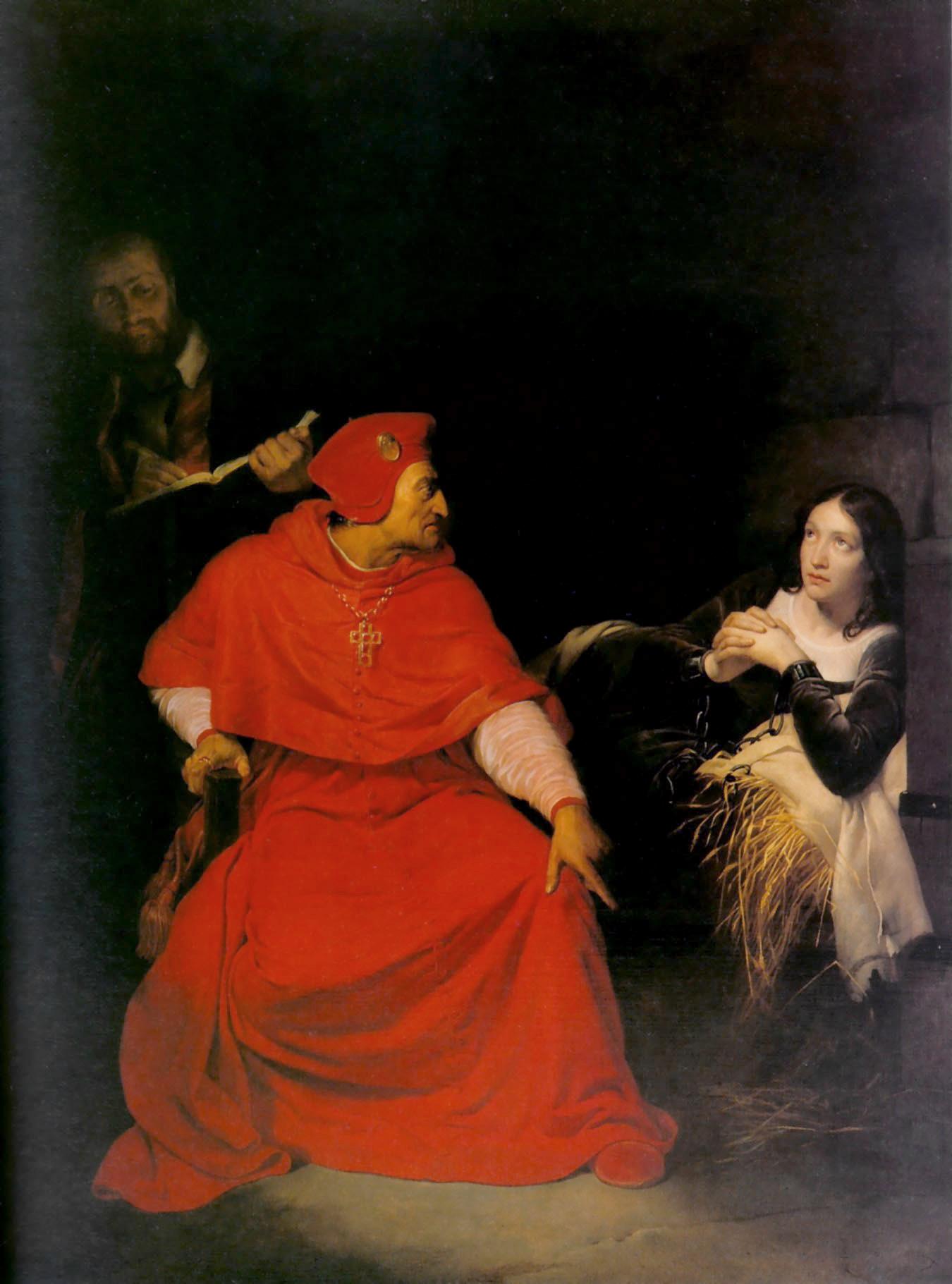
Despite her many accomplishments, Joan had enemies within her midst colluding with the Burgundians, although it is unclear who did so in Compiegne.
Joan was locked up in the castle tower dungeon in Rouen where she was no doubt mistreated and mercilessly interrogated by the Church’s inquisitors for nine months.
This Catholic Inquisition used the fact that she claimed to speak directly with God, and wore men clothes -- to condemn her to be burned at the stake.
These were the times when the Holy Church relentlessly persecuted those accused of heresy and witchcraft, and summarily executed thousands of people over a 200 year period.
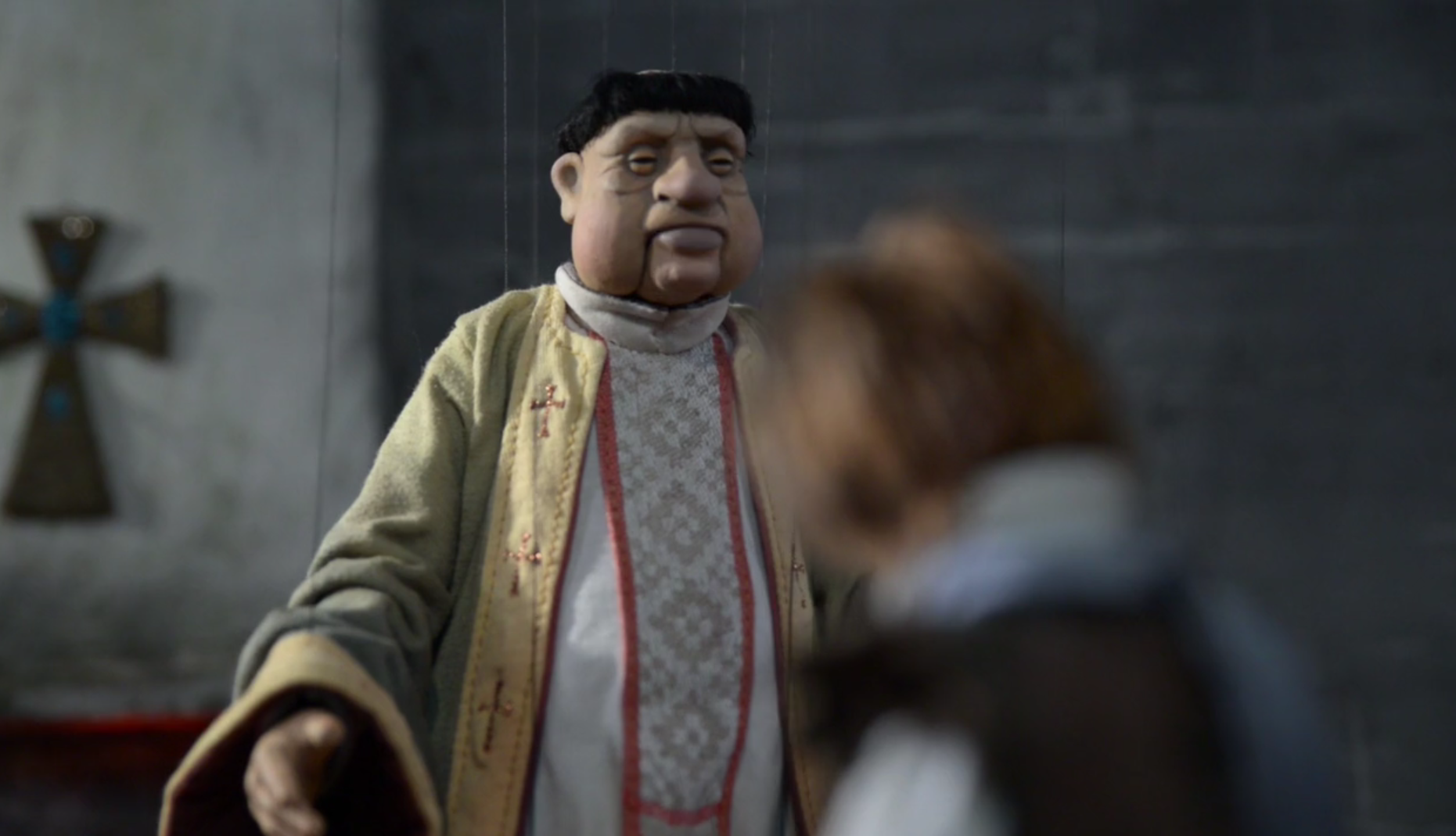
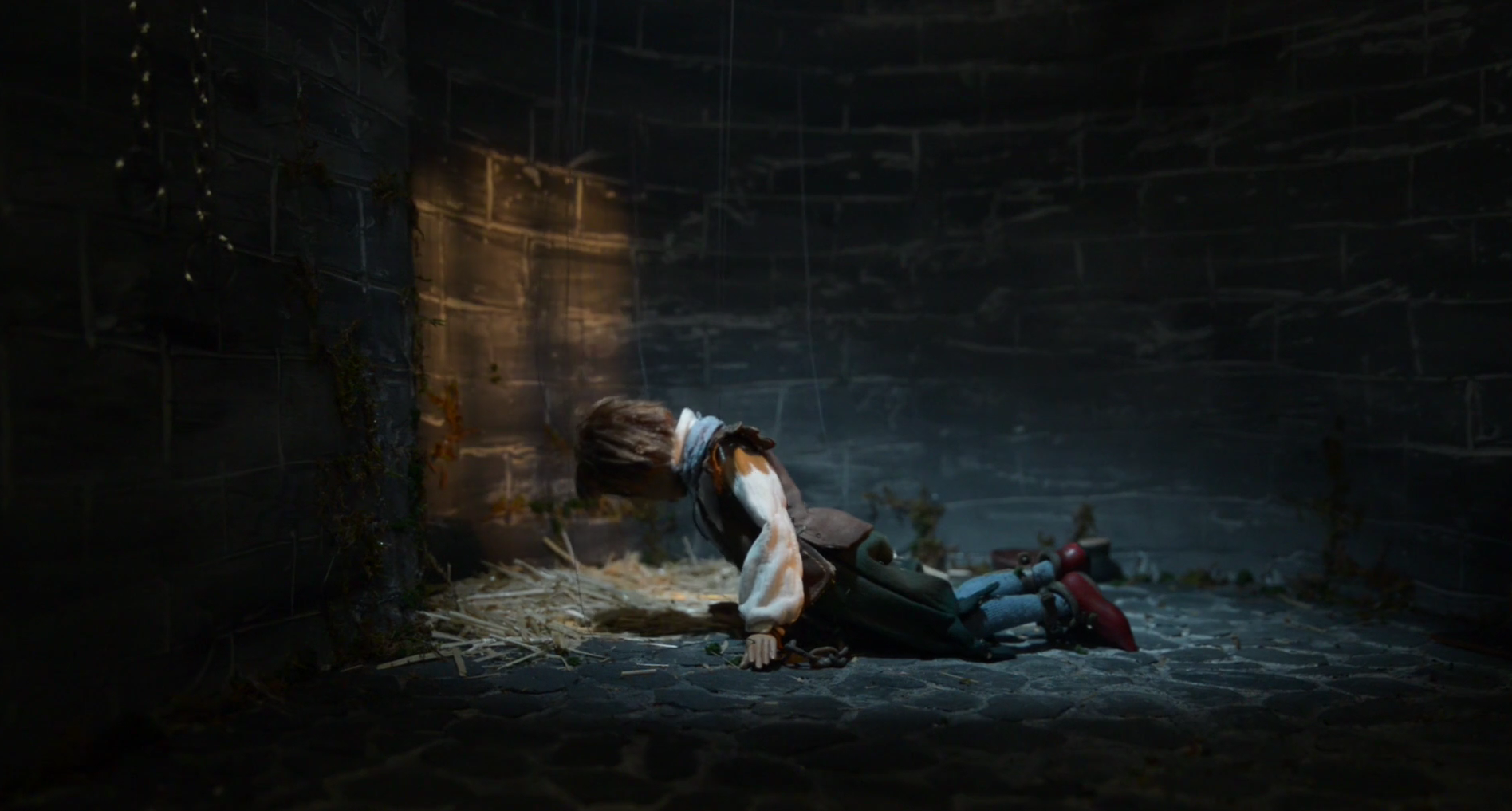
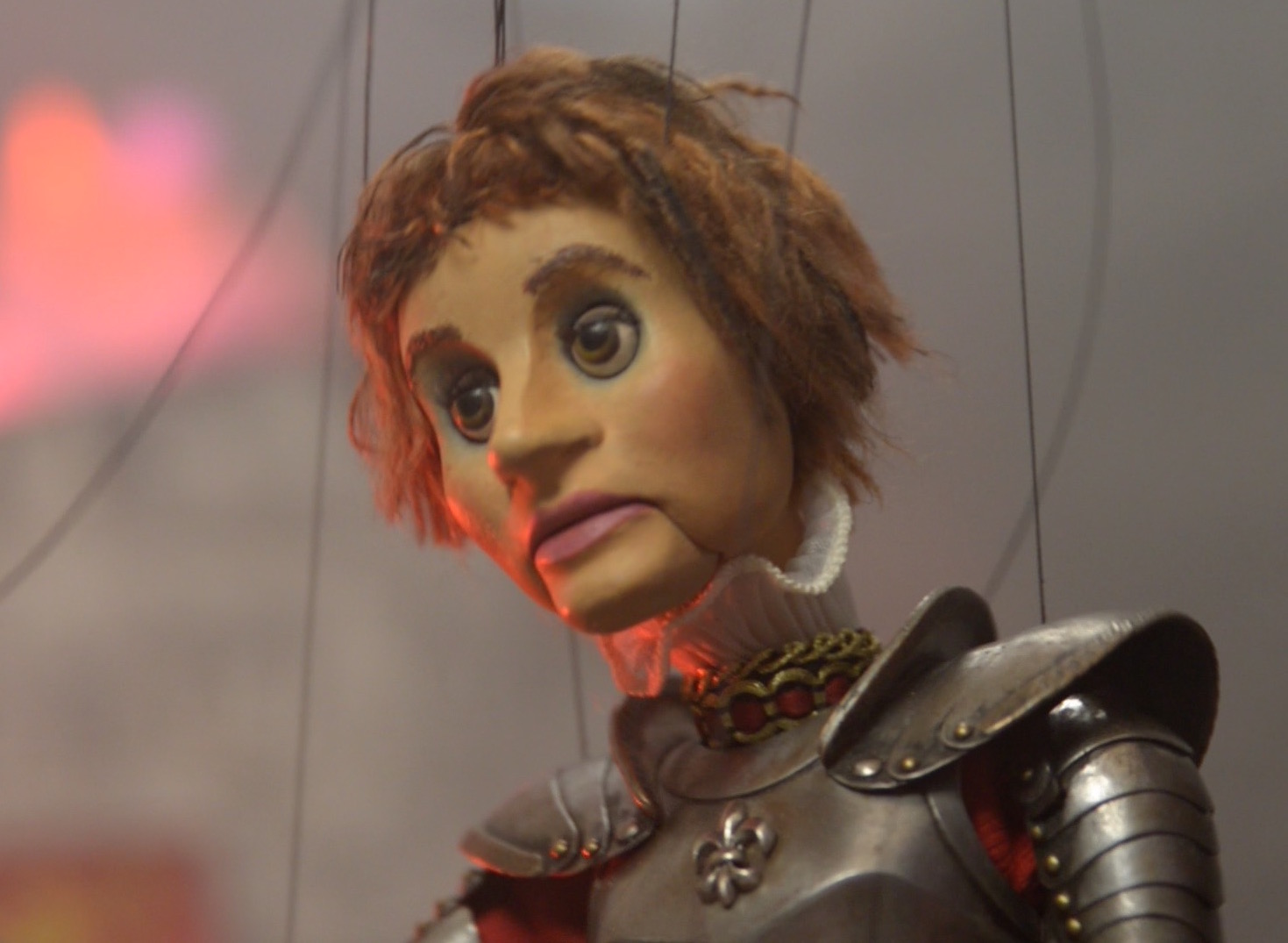
Six years after her death, the Hundred Years War between the French and the English ended and the English army went back across the Channel to fight other foes who were invading from the North. France finally became reunited under Charles VII, who ruled for 25 years. In 1455, a posthumous retrial of Joan of Arc led to her official acquittal of all charges.
The myth and the legend of Joan of Arc have evoked feelings of nationalism, religion, faith, and feminism throughout the world and across generations - and have eluded historians to this day. She was made an official Saint of the Catholic church in 1920.
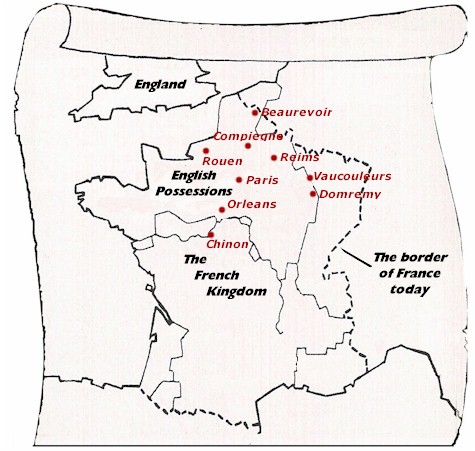
- c. 1412 Joan born at Domremy
- 1415 English victorious over French at Agincourt
- 1422 Henry V of England and Charles VI of France died
- 1429 Joan met with Charles VII; raised the siege of Orleans; successful campaign to Reims; Charles VII crowned
- 1430 Joan captured at Compiegne by Burgundians; transferred to English custody
- 1431 Tried; burned at the stake
- 1456 Papal investigation overturned verdict and exonerated her
- 1920 Canonized
